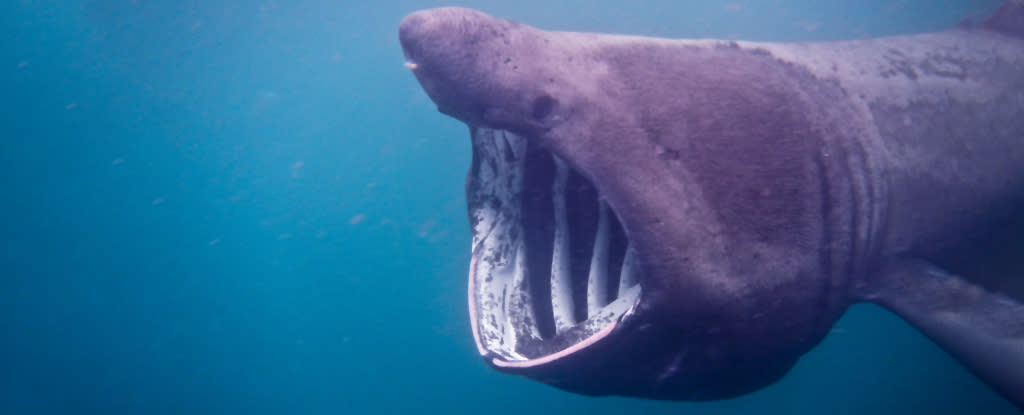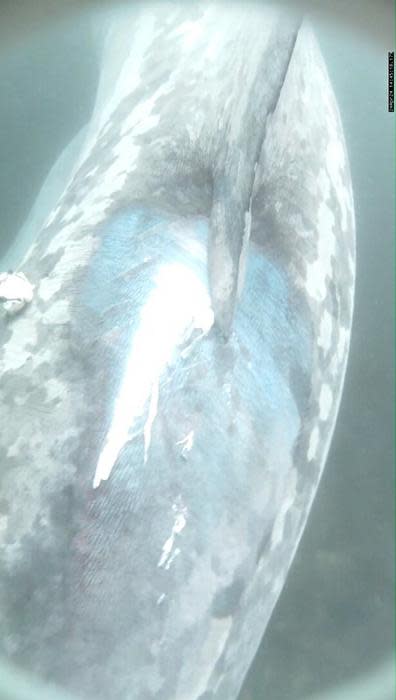First Ever Footage Shows Endangered Shark Hit by Boat, Hours After Tagging

Mere hours after a basking shark was caught and tagged by a team of researchers cruising through waters of a proposed Irish marine park, the luckless animal was struck again, this time far more violently by a less vigilant vessel.
While the endangered shark likely can't wait to forget this entire traumatic day, the footage captured on the device she was tagged with provides valuable information about boat and marine animal collisions.
"This is the first ever direct observation of a ship strike on any marine megafauna that we're aware of," explains Oregon State University marine biologist Taylor Chapple.
Basking sharks (Cetorhinus maximus) are filter feeders, which means they spend most of their time near the ocean's surface sifting plankton from the water. Just like their larger whale shark cousins and the baleen whales who feed in the same way, this 'basking' habit makes the large bodied, occasionally warm-blooded animal vulnerable to boat strikes.
"The fact that a shark we fitted our 'Fitbit' to was struck in this area within a few hours underlines just how vulnerable these animals are to boats and highlights the need for greater education in how to mitigate against such strikes," says Trinity College Dublin physiological ecologist Nicholas Payne.
For six hours after being tagged, the approximately 7-meter (23-foot)-long female fed near the surface, only occasionally diving. She fled to the ocean floor immediately after her harrowing collision, which left visible damage on her skin.

In stark contrast to her initial activity, she didn't feed again after the impact in the 7.5 hours of remaining footage. This highlights how even when the collisions aren't directly fatal, they can cause detrimental changes in behavior and other longer term consequences like injuries, the researchers point out.
"Boat strikes, and their subsequent non-lethal effects, may be more common than previously considered," Chapple and team write in their paper, noting that once the shark's skin heals there will be no visible evidence of the collision, meaning observations based on surface damage alone could potentially lead to underestimates of boat strike prevalence.
Basking sharks are endangered due to historical overfishing and culling, and Ireland's coastal waters are one of the few locations they are still known to gather in large numbers. Here they feed seasonally and may also use the area as their mating ground.
Earlier this year, Ireland announced 70,000 acres of the very waters in which the shark was struck will become the country's first National Marine Park, which will hopefully provide its animals with some protection in the future.
Chapple and team recommend more protected areas throughout basking sharks range, to allow them safe places to feed.
"More work needs to be done to assess [boat strike impacts] on the short- and long-term recovery of this species," they conclude.
This research was published in Frontiers in Marine Science.

